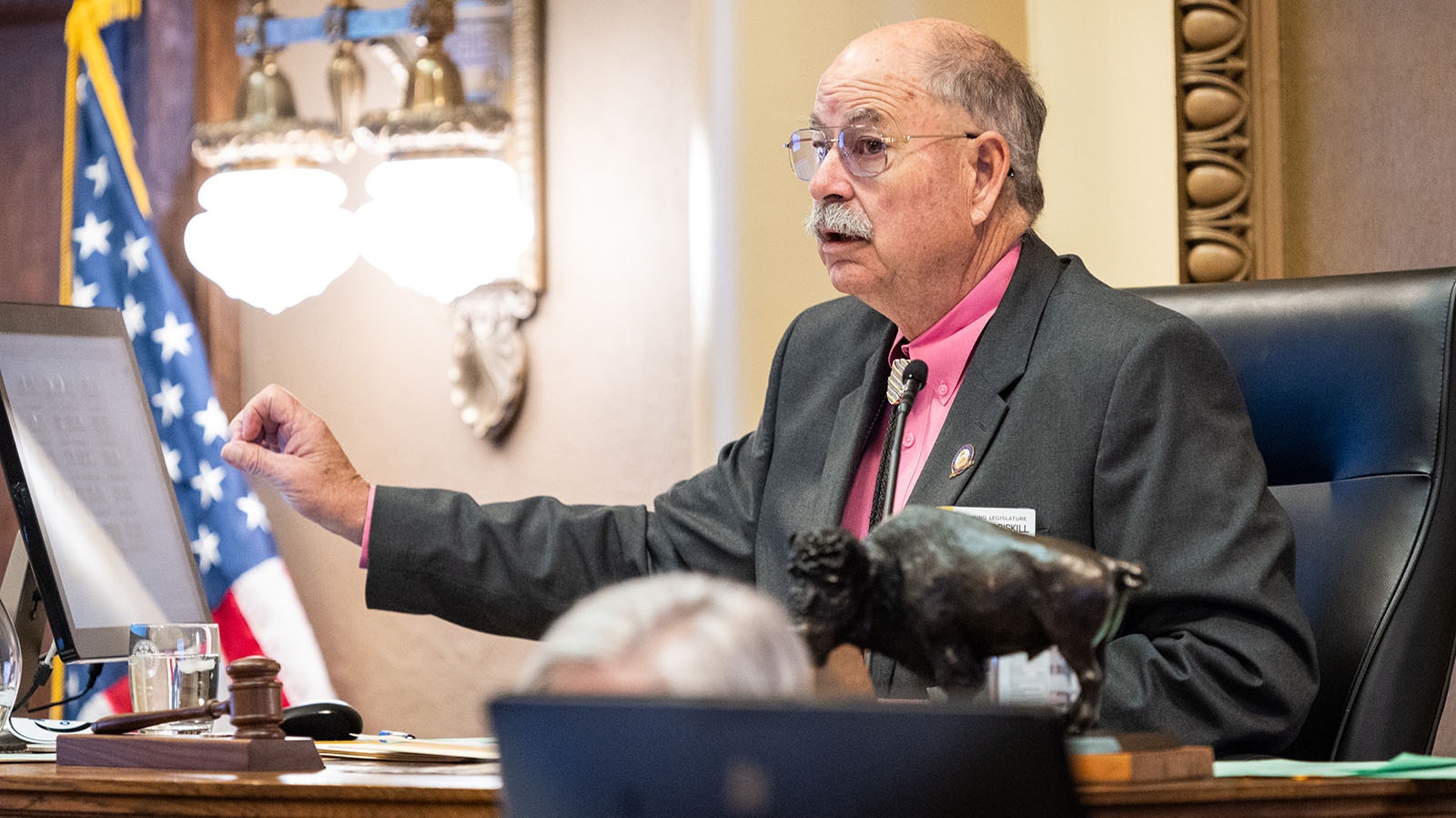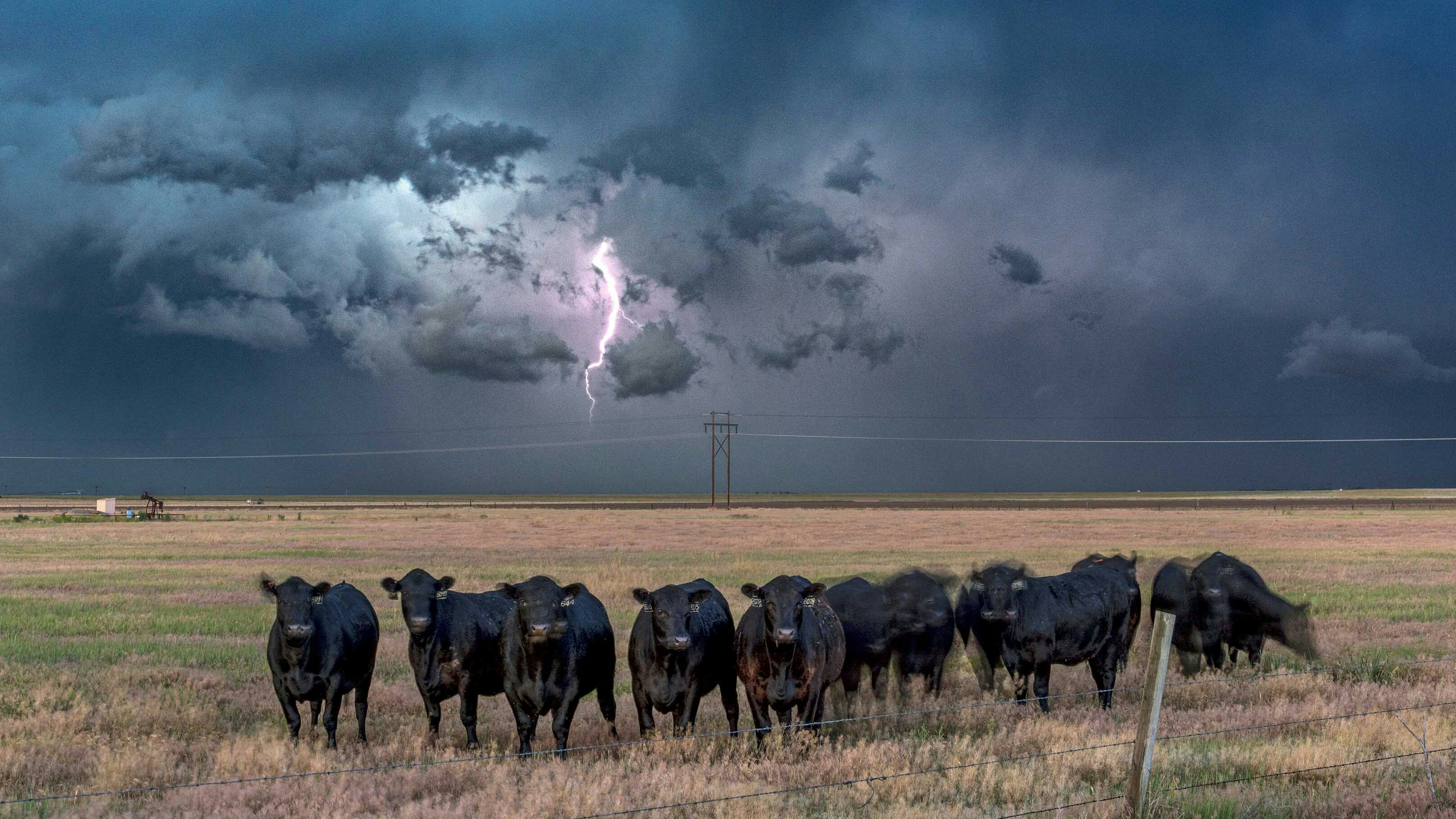Wyoming has long been known for its friendly business environment, but despite that, surrounding states are beating the Cowboy State when it comes to attracting new businesses, Senate President Ogden Driskill, R-Devils Tower, told the Joint Corporations, Elections & Political Subdivision’s Committee on Tuesday.
The committee is talking about revising a bill that would allow temporary relaxation of certain state regulations to encourage innovative businesses to set up shop in Wyoming.
A similar bill died in the 2023 legislative session, House Bill 214. That bill will be used as a starting point for new legislation that will considered at a future Corporations Committee meeting.
“Every state surrounding us is doing better business-wise, yet we are ranked No. 1 business-wise on paper,” Driskill said. “There has to be a reason. Business is coming to different places for a reason, and it’s competitive.”
Wyoming has already shown that the right set of regulations can change the game with its blockchain laws, Driskill added.
“Wyoming was widely known for not being anything to do with tech,” he said. “By a series of laws, we created an industry that’s created a lot of those businesses.”
Cheyenne now has more than 1,000 jobs associated in some way with blockchain, Driskill said.
“We can do it,” he said. “You create the field, and it can happen, and this is one of the tools that falls there. This potential to build is one of the key parts of it.”
What Is A Regulatory Sandbox
Regulatory sandboxes have been used by other states to help encourage innovation. The idea is to allow small-scale, live testing of new ideas that might not fit the existing regulatory scheme.
Arizona created the first regulatory sandbox in the United States in 2018, with a focus on financial technology companies, or fintechs.
Utah more recently created a regulatory sandbox for the legal sector, allowing lawyers and other professionals to deliver nontraditional legal services under the supervision of its Supreme Court.
According to a report on the program, in January and February, nearly 45,000 legal services were provided to nearly 25,000 clients by 49 non-traditional providers authorized by the Utah Supreme Court.
Since inception, there have been just 14 consumer complaints reported, which works out to about 1 complaint in 3,634 delivered services, while harm-related complaints were just 1 in 6,749 services — less than 0.01%.
Entity responses to harm-related complaints, meanwhile, were adequate and acceptable, according to the report.
Wyoming’s Two Sandboxes Aren’t Being Used
Wyoming, too, has already tried a couple of regulatory sandboxes. There’s one for digital medical devices and another for fintechs.
So far no one is using them, Gov. Mark Gordon’s Chief of Staff Drew Perkins told lawmakers.
Rep. Mike Yin, D-Jackson, who is on the Corporations Committee, was among those who supported those sandboxes. He was disappointed to hear no one is using them.
“I want that business innovation,” he said, “But, especially hearing from you saying that the venture capitalists are focusing on states that have much higher, relative to Wyoming, much higher regulatory burdens than we do, are there other places that we need to look to incentivize our system than just regulatory burdens?”
Perkins suggested that Wyoming partner with like-minded states to streamline regulation, like professional licensing is handled now.
“I believe one of the problems that we have in Wyoming is just simply the lack or sparseness of population,” he said.
Banding with other states would help create a sizable population for companies interested in the sandbox concept.
Other states around Wyoming are interested, he added.
He’s already talked with Gov. Doug Burgum in North Dakota, the chief of staff and director of Utah’s Office of Regulatory Relief and Nebraska’s chief of staff.
“They have been interested in doing this,” Perkins said. “I believe that if we went down and found, particularly in kind of the Rocky Mountain, in the Western states, that we could accumulate a population of 20 to 40 million people in states that would do this.”
That population would make Wyoming’s sandbox more appealing and more economically feasible, Perkins suggested.
Go Bigger Than The Box
Driskill, meanwhile, encouraged lawmakers to err on the side of being too broad, pointing out the Legislature can always come back later to tighten things up.
“Let’s really try to look hard on how do we get people coming to the state,” he said. “It’s not climate. It’s not money. When you look at it all the way around Wyoming, on every state that surrounds us, they’re doing better to attract business than we are. To me, that’s what led me to look at a regulatory task force and a couple of other things is when someone’s doing better than you.”
The sandbox, Driskill added, won’t be a vehicle for criminals to dodge sensible rules and regulations.
“This is about making (regulations) good,” Driskill said.
It will allow Wyoming lawmakers and officials to really scrutinize which regulations are needed and which are just burdensome.
“I think you guys can help really make that happen,” Driskill said.
The Fairness Issue
Fairness was an element that particularly concerned Sen. Cale Case, R-Lander, who is co-chairman of the Corporations, Elections & Political Subdivisions Committee.
“If we have economic development activity and we change and we provide funding for businesses over other businesses, we’d say that’s not fair,” he said. “That’s choosing winners and losers. That’s helping one competitor do better than some other.”
With a regulatory sandbox, the unfair advantage might not be money, but easier regulatory burdens can be a big edge.
“Maybe it’s a new type of business and there’s nothing comparable, but there seems to be a fairness issue,” Case said.
Perkins said the key is that the relief is temporary, and it’s for demonstrating an innovative idea and examining whether a particular regulation is really needed at all.
“(Fairness) is an important consideration,” he said. “I think it’s incumbent in both the rule-making as well as the drafting of the legislation to make sure that you’re always talking about innovation. And ultimately, keep in mind that if the innovation is successful, that may benefit existing people as well. Because that innovation can then take root across the agency.”
Regulatory relief also would not include protection from consumer liability, nor from criminal prosecution for fraudulent behavior, Perkins added. Companies would be required to make appropriate disclosures to their consumers as well.
“The disclosure requirements are usually steep and significant,” Perkins said. “So that customers in the sandboxes of these offerings know what they’re getting, to know that there are additional risks involved.”
In a perfect world, the regulatory sandbox will also highlight any laws that are stifling innovation while not providing substantial consumer protection.
To that end, Perkins suggested part of the effort ought to include a website that invites people to comment on regulations they find burdensome or overly expensive.
Contact Renée Jean at Renee@CowboyStateDaily.com





